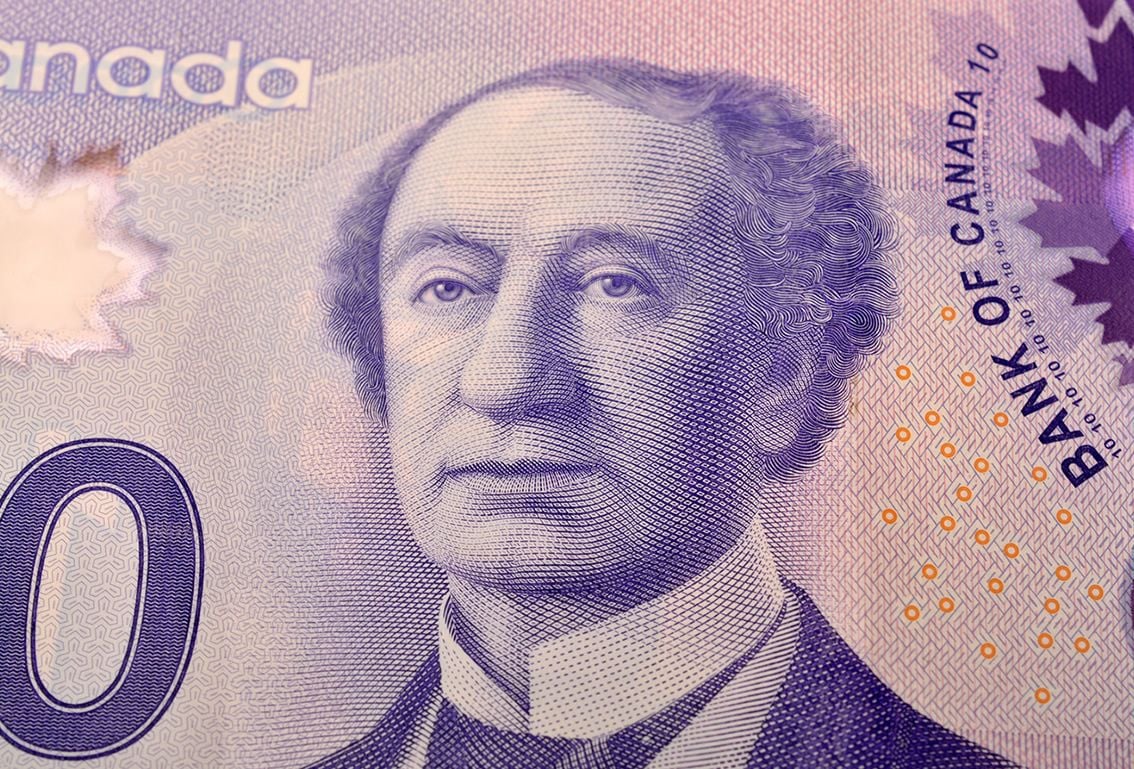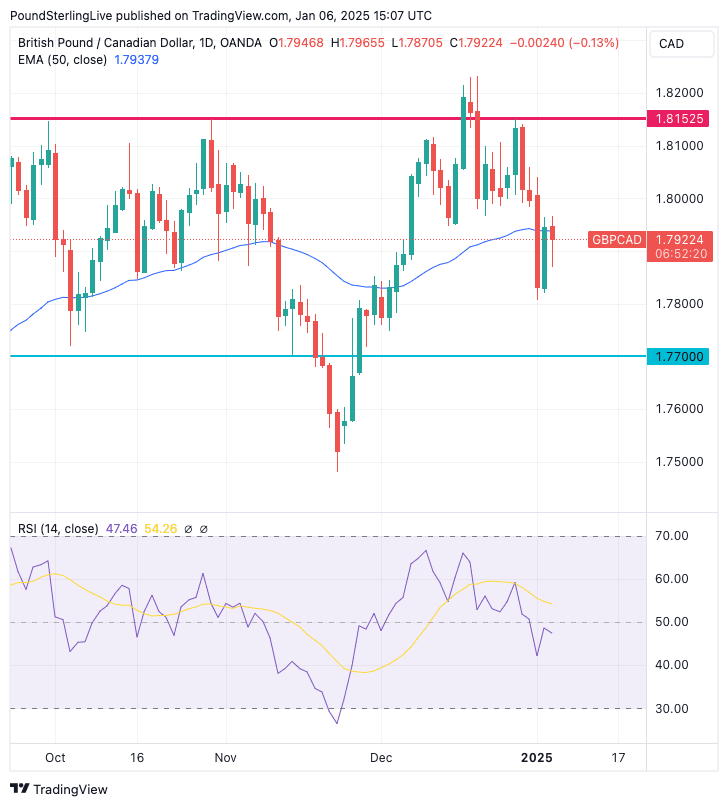- Trump tariff news boosts CAD
- Trudeau looks to be headed for the exit
- GBP/CAD technicals pointing lower

Image © Adobe Stock
The Pound to Canadian Dollar exchange rate (GBP/CAD) trades lower following signs Donald Trump is softening his stance on trade tariffs.
It was reported Monday that Trump is now considering a universal tariff on goods judged as being critical to the U.S. economy, removing the tail risk of a blanket import duty.
The reports lifted stocks and sent the Dollar packing as a worst-case tariff outcome now looks less likely.
The developments are significant for the Canadian Dollar, which was hammered in November when Trump went after China, Mexico and Canada, threatening significant tariffs due to issues surrounding illegal immigration into the U.S. and the flow of drugs.
The Canadian Dollar fell following those reports, suggesting it is particularly sensitive to the matter. When some good news comes along, it stands to reason that it should be a beneficiary.
By contrast, the GBP has never been judged to be at risk of tariffs, owing to the UK's services heavy export base. The GBP, therefore, has less to benefit.
This pressures GBP/CAD and contributes to a technical setup favouring further downside.
GBP/CAD looks exhausted: Three major attempts at a breakout above 1.81 have been made in the second part of 2024, all were unsuccessful.
Like a wounded soldier, GBP/CAD limps home to the safety of the middle ranges of the 2024 period.
We see momentum turning down, with the Relative Strength Index (RSI) fading to below 50.
The exchange rate is also toying with a break below the 50-day moving average, which if delivered, would signal a more pronounced shift in trend beckons.
But it won't be until the 200-day moving average is pierced (at around 1.77) that GBP/CAD flips into a downtrend.
The heavy nature of the setup nevertheless suggests a test of this level is a possibility for January.
News reports are meanwhile suggesting Prime Minister Trudeau is heading for the exit, following recent political uncertainty. The Globe and Mail reported Monday that the move would trigger a contest to replace him as prime minister.
The move is not unexpected as it was clear for some time that Trudeau was in the sunset of his Prime Ministerial career: facing the prospect of defeat in elections that must take place before October, Trudeau has been under pressure from within his party to quit for months.
That has only intensified since Chrystia Freeland, his finance minister, stepped down on Dec. 16, saying she and the prime minister were at odds on policy.
At the time, the political uncertainty was said to be behind CAD weakness. However, Canadian political risks are still small, given that the Conservative Party will likely win later in the year, and with them come promises to reform Canada's economy in a pro-growth direction.

